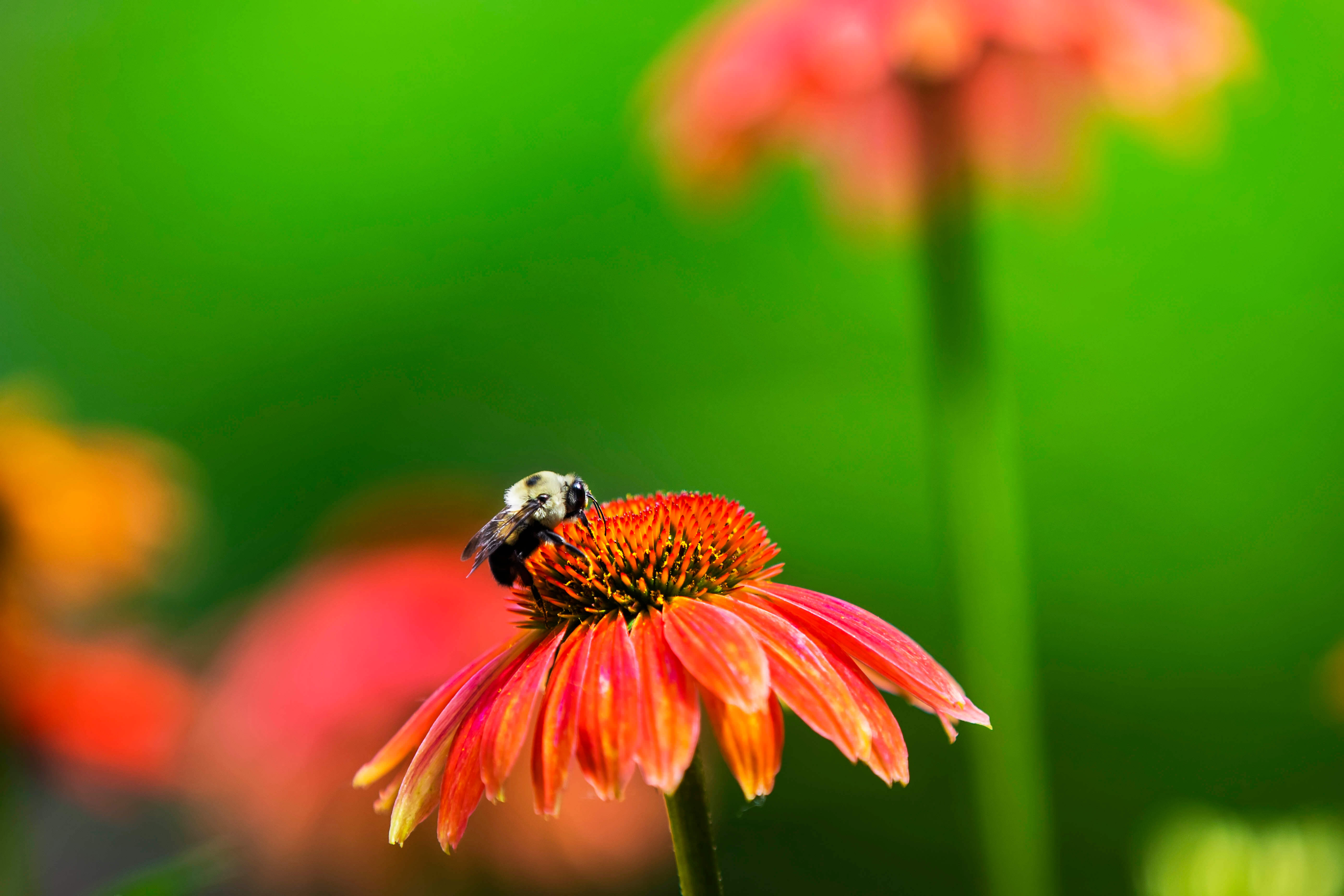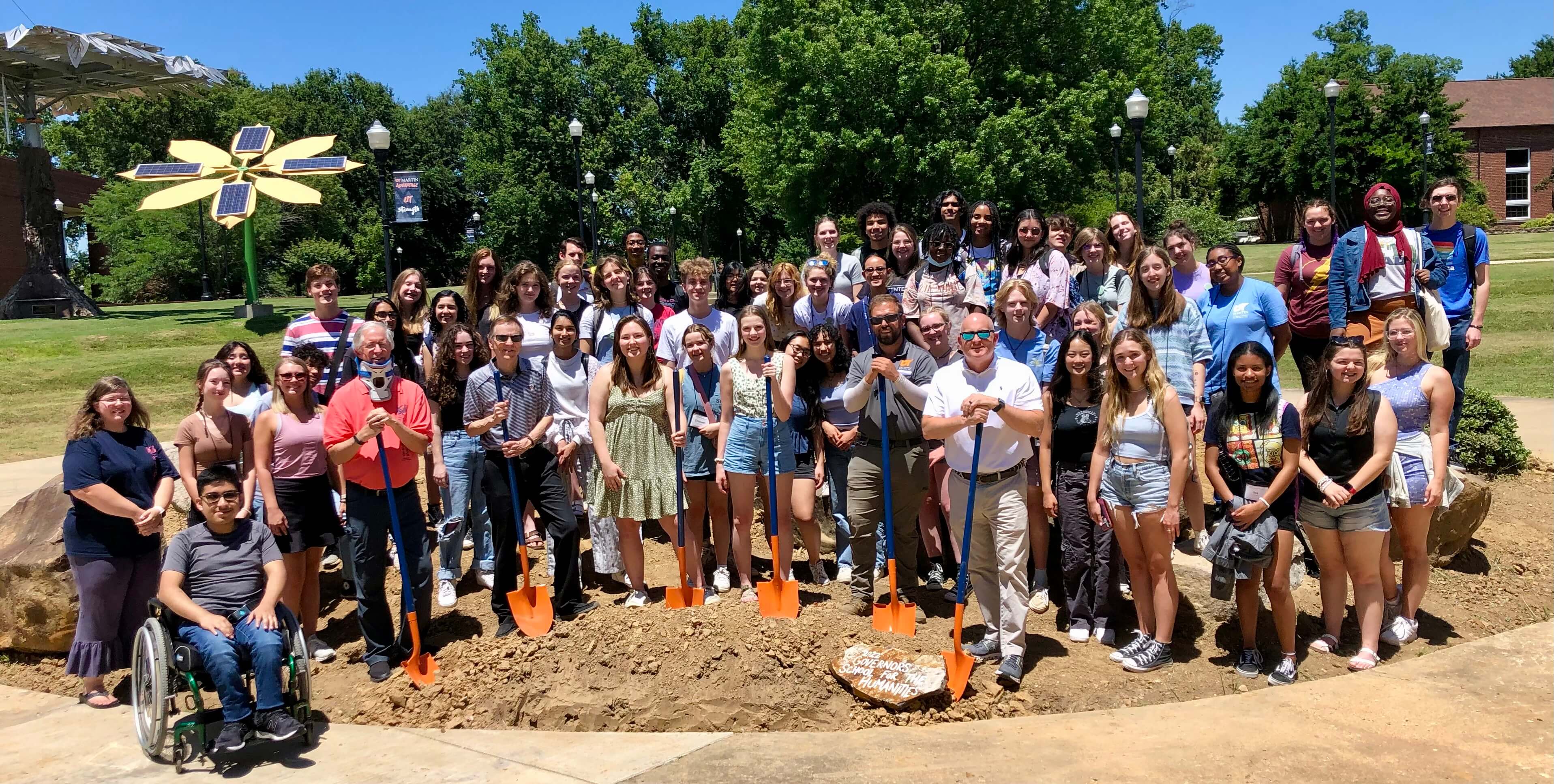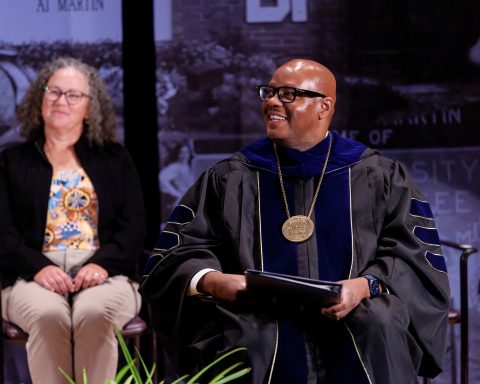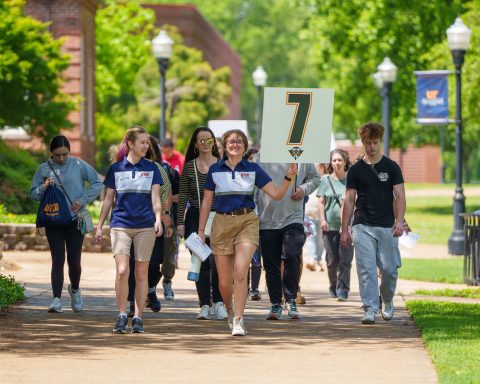The University of Tennessee at Martin has become an affiliate of the Bee Campus USA program, designed to marshal the strengths of educational campuses for the benefit of pollinators. UT Martin joins other cities and college campuses across the country united in improving their landscapes for pollinators.
Bee City USA and Bee Campus USA are initiatives of the Xerces Society for Invertebrate Conservation, a nonprofit organization based in Portland, Oregon, with offices across the country. Bee City USA’s mission is to galvanize communities and campuses to sustain pollinators by providing them with healthy habitat, rich in a variety of native plants, and free of pesticides.
According to the Xerces Society, pollinators like bumble bees, sweat bees, mason bees, honeybees, butterflies, moths, beetles, flies, hummingbirds, and many others are responsible for the reproduction of almost 90% of the world’s flowering plant species and one in every three bites of food we consume.
“How each city or campus completes the steps to conserve pollinators is up to them,” said Laura Rost, Bee Campus USA coordinator. “Affiliates play to their own strengths, designing pesticide reduction plans, improving habitat, and holding events ranging from garden tours to native plant giveaways to bee trivia nights.
“Each campus must renew their affiliation each year and report on accomplishments from the previous year. Other institutions of higher education are invited to explore completing the application process outlined at beecityusa.org.”
“UT Martin serves a key agricultural region and protecting our bee population is necessary for our farms and communities,” said Dr. Keith Carver, UT Martin chancellor.
“UT Martin serves a key agricultural region and protecting our bee population is necessary for our farms and communities,” said Dr. Keith Carver, UT Martin chancellor. “The flexibility to build a program that works best for the university is a strength of the Bee Campus USA affiliation that will allow us to be successful partners in this important work.”
According to Dr. Eric Pelren, UT Martin professor of wildlife biology, the university has planted trees, shrubs and flowers that are beneficial to pollinators as well as occasional delayed mowing to attract more pollinators. The university is committed to minimizing hazards to pollinators by using nearly no neonicotinoids or other potentially dangerous pesticides.
To raise awareness about the plight of pollinators, the university plans to publish a webpage to disseminate information to the campus and external communities, including UT Martin’s Integrated Pest Management Plan, a list of native plants incorporated into the campus landscape along with their bloom time and habitat needs, links to student and faculty research into pollinator issues, and information about upcoming events.
Pelren, also the university’s Center for Sustainability coordinator, sees opportunities for student research and service-learning. Already faculty, staff and students have worked together to study and create pollinator habitat with native plants. Multiple courses include pollinators in their syllabi, and removing invasive species is an important student activity. Among related future activities for student groups, the university plans to hold “Weed Wrangle” activities during Earth Week in April.
For more information about UT Martin’s Bee Campus USA program, contact Pelren at epelren@utm.edu or 731-881-7263. For more information about Bee Campus USA, visit www.beecityusa.org/.
###








